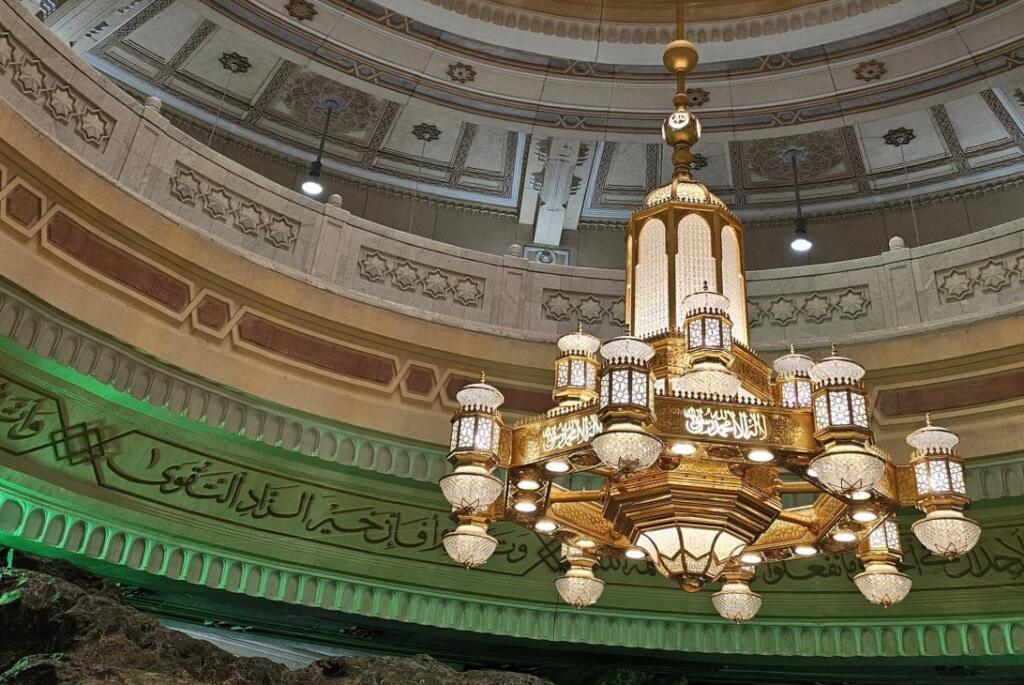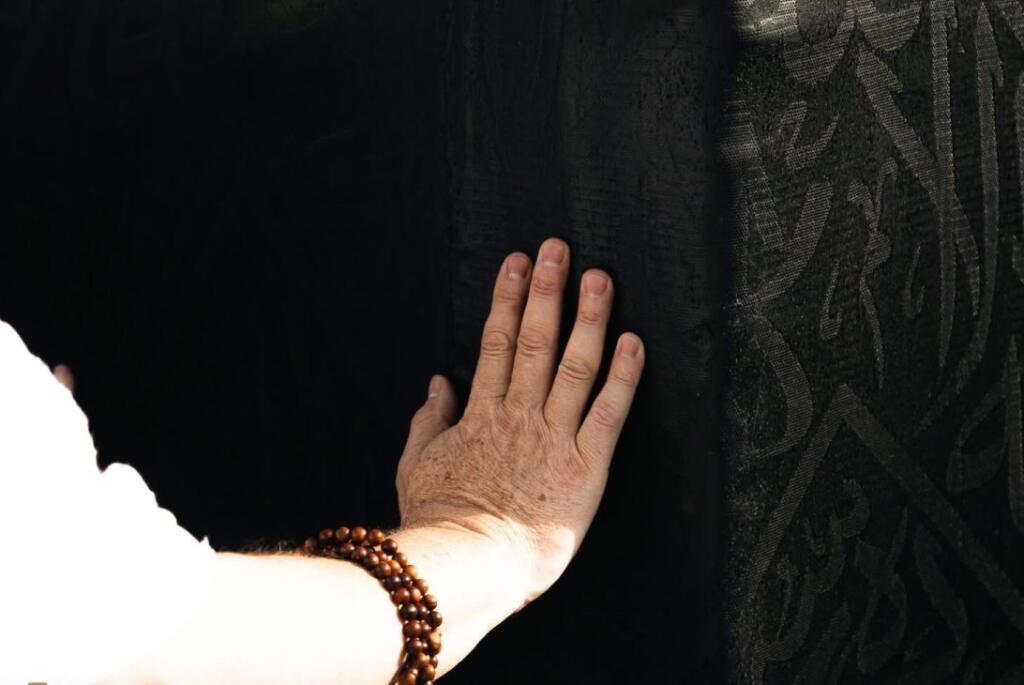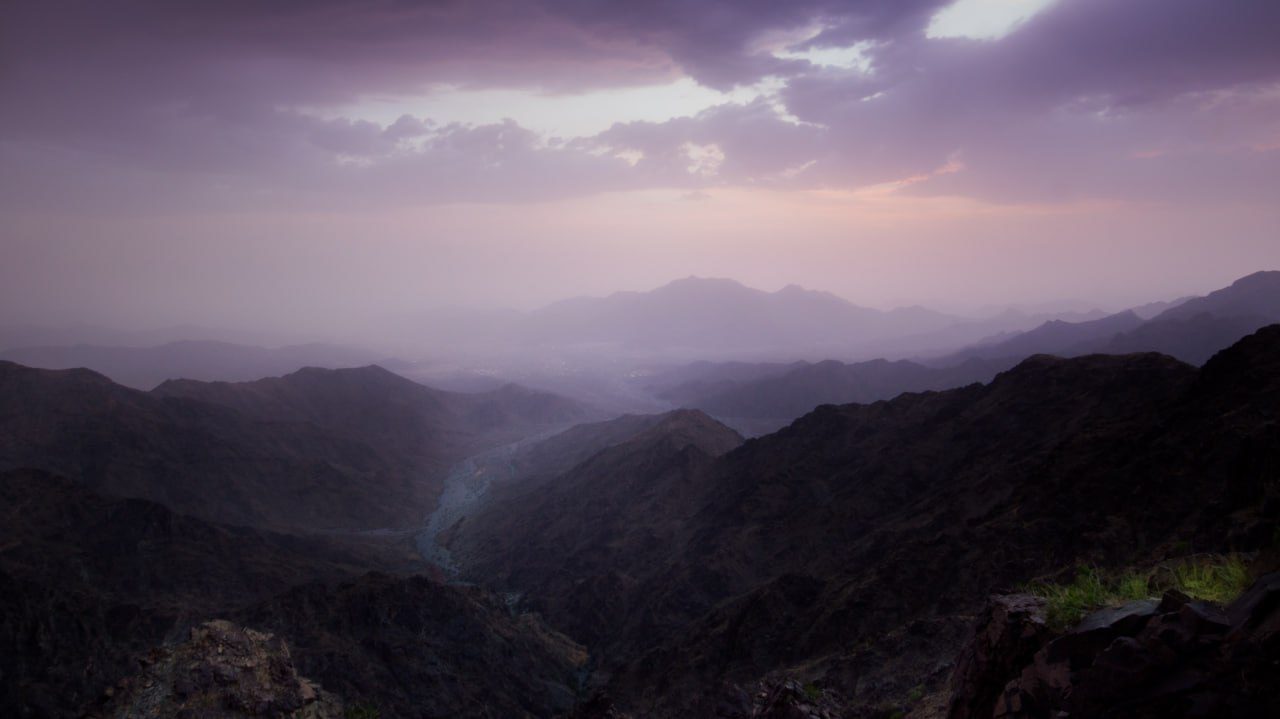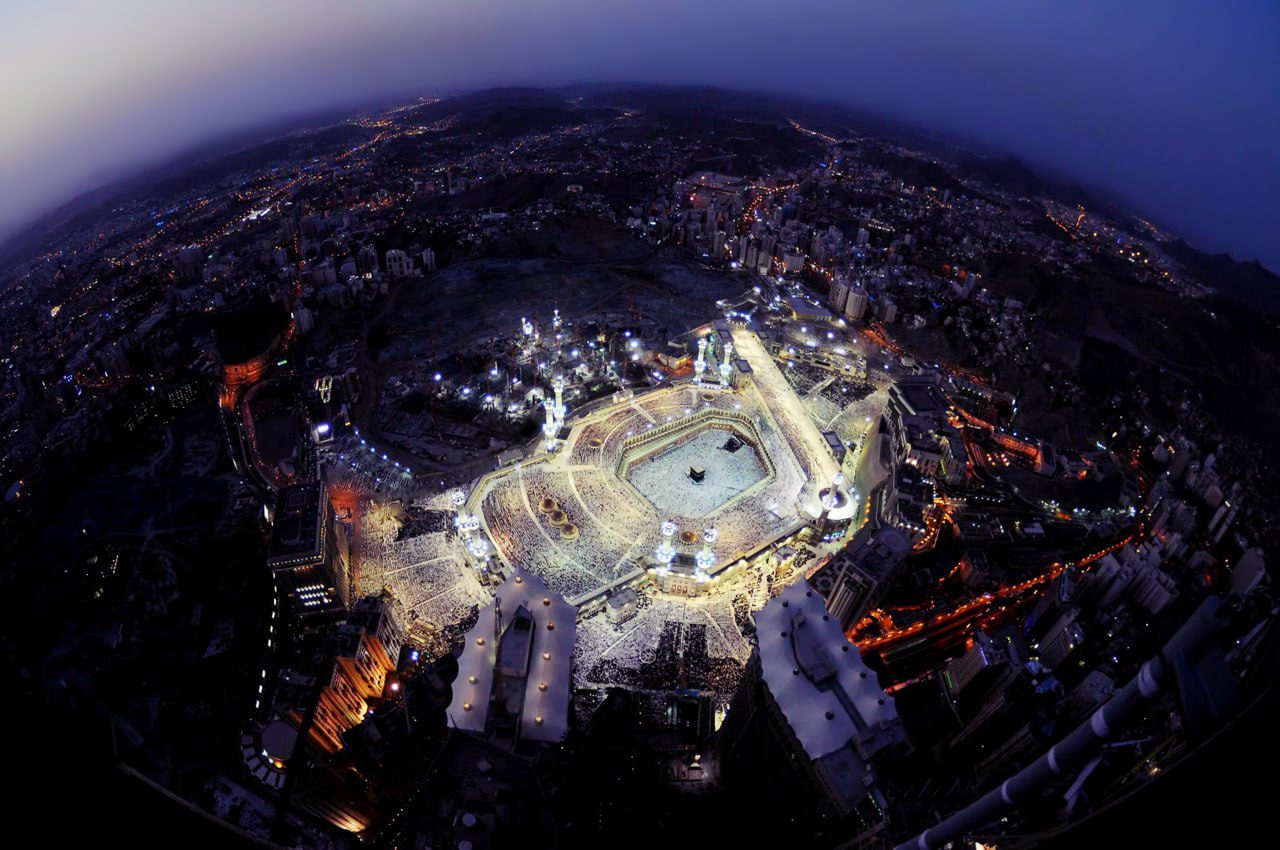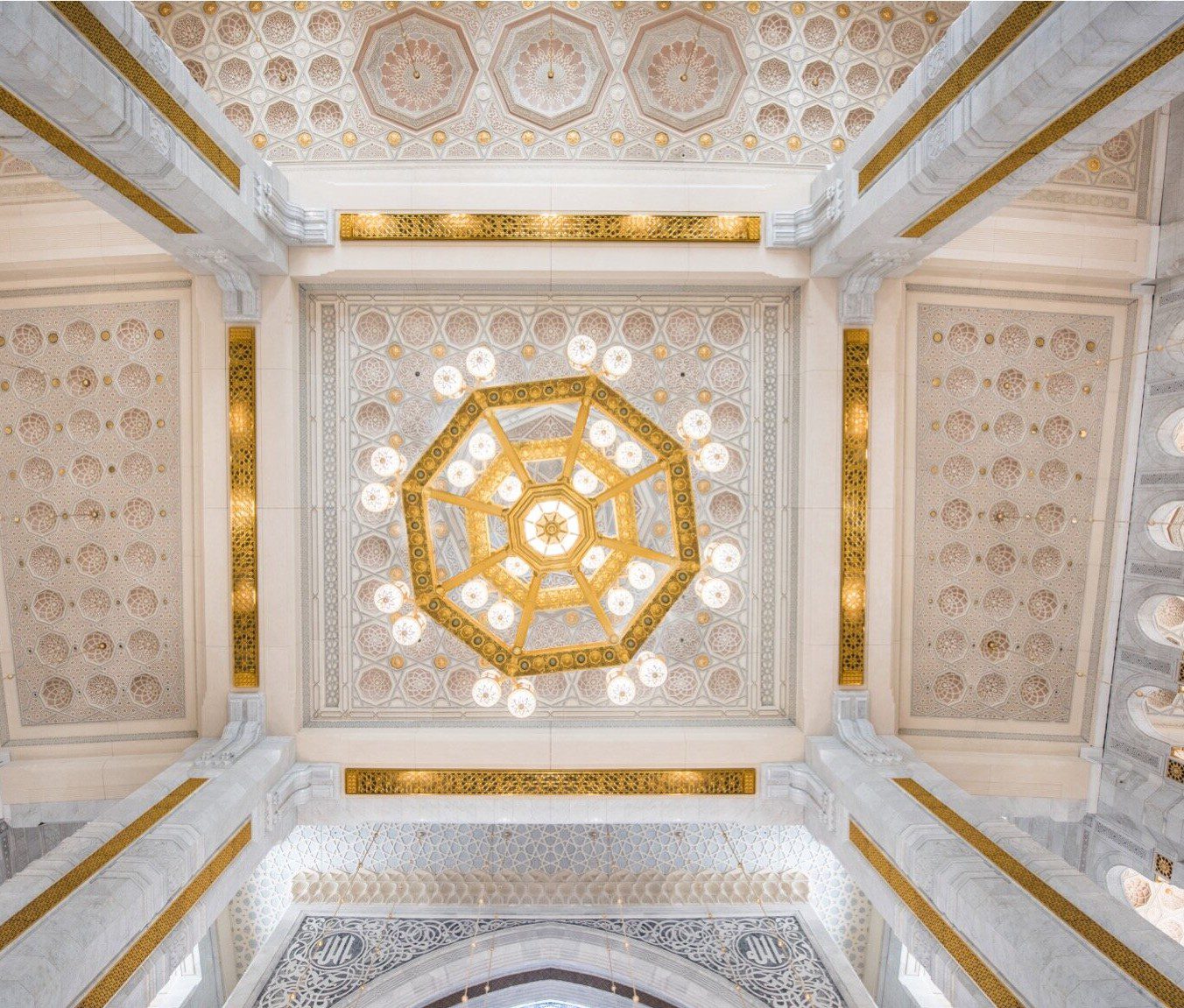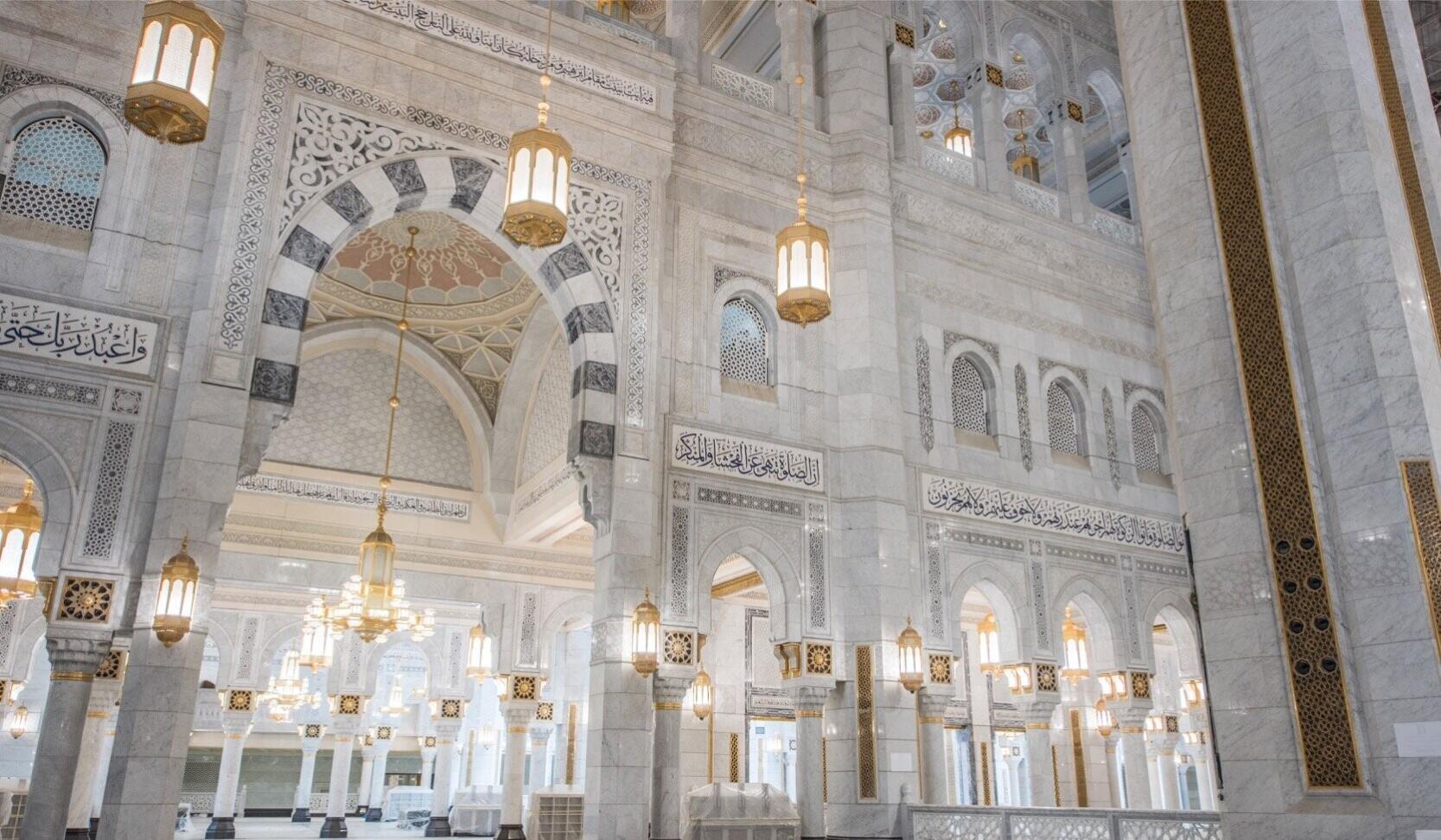One of the main purposes of ḥajj is to renew your connection with the leader and founder of the Abrahamic monotheistic path: Ibrāhīm, the close friend (khalīl) of Allah. It is to be inspired by his spirit, preserve his legacy, and align your practices with his example. Through this, you are able to reflect on the current condition around the world, correct the deviations or corruptions that may have crept into your life, and restore everything back to its original source and foundation.
Shāh Waliyyullāh (raḥimahullāh) writes: “One of the objectives of ḥajj is to conform with the traditions inherited from our masters Ibrāhīm and Ismāʿil (ʿalayhimas-salām) for they are the leaders and legislators of the ḥanīfiyyah (pure monotheistic) religion for the Arabs. Prophet Muhammad ﷺ was sent to revive this faith and elevate its word, as Allah ﷻ said, ‘…[Follow] the religion of your father Ibrāhīm… (22:78).’”
Ibrahim (ʿalayhis-salam): the Khalil of Allah
Ibrāhīm was born into a household of idol custodians. His father was one of the greatest caretakers of idols in the land. He carved them, sold them, and served at the grand temple, tying his life to idolatry both in belief and profession. And what a heavy dilemma it is, when faith is bound to livelihood, when religious emotions are intertwined with material interests.
Nothing in this spiritually dark environment would normally ignite faith or inspire compassion or rebellion against the pagan superstitions, except a pure heart. A heart that is prepared for Prophethood and destined to shape a new world: “And indeed, We had granted Ibrāhīm sound judgment early on, for We knew him well (to be worthy of it)” (21:51).
His journey began with a revolution that many revolutions never even reach. He began at home, right within the house he was born into and compelled to reside in. The Qur’ān narrates, in its miraculous style, how Ibrāhīm destroyed the idols, how their worshippers were enraged, confused, and speechless, and how they took revenge by casting him into fire, only for Allah to make it cool and safe for him. Then came his bold and eloquent debate with the tyrant king.
Ultimately, Ibrāhīm’s revolution led to alienation in his own homeland. Society rejected him, the regime hunted him, but he didn’t flinch. He had expected it all along. He left his land at peace with himself, having safeguarded his true treasure: belief in Allah.
He set off, wandering through a world saturated in idolatry, falsehood, and self-worship, until he arrived in Egypt, only to face another trial. There, he became the target of humiliation when the ruling king lusted after his wife Sārah (ʿalayhas-salām), but they both escaped unharmed. They settled in the land of al-Shām (Greater Syria). There, he resumed his call to reject idols and to worship Allah Alone.
He found peace in living in al-Shām: a land rich in fertility, abundant in provision, and overflowing with natural beauty. Yet soon, he was commanded to head toward a land that was completely different to al-Shām in terms of fertility and water.
Ibrāhīm was selfless. He never considered himself entitled to a particular land or attached to any specific homeland. He was entirely at the disposal of Divine command, viewing the world as his country and the human race as his family.
He was ordered to travel with his wife Hājar and their infant son. They arrived in a narrow valley surrounded by barren mountains on all sides, where the climate was harsh, water was absent, and there was no companionship. There, he was commanded to leave his weak and helpless wife and young child; relying solely on Allah, submitting to His command, and surrendering to His will.
There was no panic, no fear, no overprotectiveness or hesitation, no boredom or despair, no weakness in resolve, and no doubt in the promise. It was a rebellion against worldly logic, defiance of nature and abandonment of material means. It was faith in the unseen, and trust in Allah when every certainty crumbled.
The fear became a reality: the infant suffered from thirst, the mother was desperately thirsty too. No hope existed in a small spring from which she could quench their burning thirst. Then the maternal instinct surged in her, overflowing with love and concern for her child. She ran back and forth between two mountains in frantic, tearful search of water, or of someone who might have it.
She returned to check on him to assure herself that he was alive, driven by her fear for his life. She rushed again, in search of water or a sign of human life, caught between the agitation stirred by nature and the calmness inspired by īmān. Being the wife of a Prophet and the mother of a Prophet to-be, she knew that seeking causes does not contradict reliance on Allah. She was agitated but not despondent, firm in her belief, yet neither inactive nor lazy.
A scene never before witnessed by the heavens unfolded. Divine mercy was stirred, and miraculously, the water of zamzam gushed forth. It became a blessed, eternal spring that never runs dry: a source of nourishment and healing, a fountain of blessing and reward. It quenched generations past and will continue to quench generations to come.
Allah immortalised this desperate act, born of a faithful and sincere woman, and turned it into a rite required of the greatest minds, philosophers, and rulers in every age and generation. No pilgrimage is complete without walking between those same two mountains: Ṣafā and Marwah.
Saʿy is the best representation of a Muslim’s stance in the world. It blends reason and emotion, sense and belief. The Muslim uses reason to pursue their worldly needs, but sometimes follows the heart, which often runs deeper than reason.
The Muslim lives in a world surrounded by temptations, adorned with superficial beauty, but they pass through it like the one walking between Ṣafā and Marwah; not attaching to anything, not bound by anything.
Their goal and focus lie ahead. Life is seen as a limited number of laps, traversed in obedience to Allah and in imitation of their righteous predecessors. Their faith does not prevent them from striving and seeking, nor does their striving diminish their trust and reliance on Allah. It is a movement powered and defined by ‘love’ and ‘obedience’.
The child grew up, reaching the age when the bond of fatherhood becomes strongest. He began to accompany his father and work with him. The great father, filled with deep human affection and love, felt an intense attachment to his son, the very apple of his eye. And herein lay the test. For his heart was no ordinary heart. It was the sound heart specially chosen for Divine love. It was the heart of the Friend of the Most Merciful (Khalīl ar-Raḥmān). Love does not tolerate a partner nor a rival. What then of Divine love?
Then came the command: Ibrāhīm received a vision to sacrifice his beloved son. And the visions of Prophets are revelations. The vision came again, and he realised this was a firm command, not a mere dream. He decided to consult his son, as such an act could not be fulfilled without his acceptance and willingness. And what did he find? He found in him the peak of righteousness, intelligence, sacrifice, and surrender to God’s will. After all, he was a Prophet, son of a Prophet, and great grandfather of a Prophet:
…“…O my dear son! I have seen in a dream that I am sacrificing you. So tell me what you think.” He replied, “O my dear father! Do as you are commanded. Allah willing, you will find me steadfast” (37:102).
Then something unimaginable occurred. The father set out with his noble, beloved son; the father to sacrifice his son, and the son to obey his Lord and his father. Both submitted completely to Allah’s command. Shayṭān, who is sworn to lead astray and prevent human happiness, tried to turn them from obedience, tempting them with the love of life, but both rejected him. They were determined to fulfill the command of Allah.
The moment arrived. The son lay down for slaughter. The father placed the knife on his son’s throat and exerted himself to make the cut… and Allah willed it, and so it happened.
But the goal was not the sacrifice of Ismāʿīl, rather, it was the sacrifice of any love that competes with Divine love. That competition was wiped out by placing the knife on the throat. Ismāʿīl was born so he could live, thrive, and have descendants, among them the final Prophet and Master ﷺ. How could he be sacrificed before this destiny was realised?
So Allah ransomed Ismāʿīl with a ram from Paradise, and made it a lasting tradition for his descendants and followers: to offer sacrifices during the days of Eid, commemorating that great act of devotion.
“Then when they submitted (to Allah’s Will), and Ibrāhīm laid him on the side of his forehead (for sacrifice), We called out to him, “O Ibrāhīm! You have already fulfilled the vision.” Indeed, this is how We reward the good-doers. That was truly a revealing test. And We ransomed his son with a great sacrifice, and blessed Ibrāhīm (with honourable mention) among later generations: “Peace be upon Ibrāhīm” (37:103-9).
Allah immortalised the story of Shayṭān’s attempt to mislead Ibrāhīm by commanding the stoning ritual at the very spots where the devil had tried to deter him. This symbolic act, repeated annually during the best days of the year, stirs the believers to reject Shayṭān, to demonstrate defiance against him, and reflects a believer’s constant struggle against evil. It is a moment of spiritual joy and emotion, if the faith is genuine, the understanding deep, and the surrender complete. It reminds the believer of his eternal battle with Shayṭān and his allies, as Shayṭān is left humiliated.
Time passed. Ismāʿīl, once a small child, was now a strong young man, honoured by Allah with prophethood and leadership. Ibrāhīm’s call had borne fruit, spreading wide and far. Yet it needed a centre and sanctuary to gather around. There were plenty of palaces for kings and many temples for tyrants, where desires were obeyed and Shayṭān was worshipped. But there was no House purely dedicated to Allah on His Earth, purified for His worshippers.
Now that the foundations of faith were established and the Muslim nation had begun to form, Ibrāhīm was commanded to build the House of Allah, a sanctuary of safety and monotheistic worship.
Father and son worked together to build this humble yet majestic structure. They carried stones and raised the foundation, all the while praying:
“And (remember) when Ibrāhīm raised the foundation of the House with Ismāʿīl, (supplicating), ‘Our Lord! Accept (this) from us. You are indeed the All-Hearing, All-Knowing. Our Lord! Make us both submit to You, and from our descendants a nation that will submit to You. Show us our rituals, and accept our repentance. You are truly the Acceptor of Repentance, Most Merciful’” (2:127-8).
Thus the House was built, founded on unparallelled faith and sincerity. Allah accepted it and decreed its preservation. He adorned it with majesty and grace, turned hearts toward it, and made it the object of love and longing, the magnet of hearts. People yearn to reach it even if they must crawl on their foreheads. They offer their very souls to be near it, despite its location in a barren land, away from natural beauty and urban splendor.
Then, Ibrāhīm (ʿalayhis-salām) was commanded to proclaim:
“Proclaim the pilgrimage to all people. They will come to you on foot and on every lean camel, travelling through every deep mountain pass. so they may obtain the benefits (in store) for them, and remember the Name of Allah on appointed days over the sacrificial animals He has provided for them. So eat from them and feed the distressed, the poor. Then, they must remove their dirt, and fulfill their vows, and make ṭawāf of the Ancient House” (22:27-9).
During the time of Prophet Ibrāhīm (ʿalayhis-salām), the world was obsessed with relying on material causes. They believed these causes had independent power and influence. They regarded them as deities besides Allah. This attachment and veneration of causes became a form of idolatry, distinct from their previous idolatry of worshipping idols and statues.
The life of Ibrāhīm was a revolution against all forms of idolatry and a call to pure, untainted monotheism. It was a testimony to Allah’s boundless power over all things: that He creates out of nothing, that He is the Creator and Owner of all causes, and that He can separate causes from their effects. He can bend the laws of nature as He wills and when He wills.
When people lit a fire to burn Ibrāhīm and said: “Burn him up to avenge your gods, if you must act” (21:68), Ibrāhīm had complete faith that fire is under Allah’s control. Burning is not an unchangeable quality inherent in fire. It’s a characteristic entrusted to it, a tool. If Allah wills, He gives it permission to burn. If He wills, He restrains it and transforms it into coolness and peace. So Ibrāhīm entered the fire calmly, with full faith and complete trust.
And so it happened: “We ordered, ‘O fire! Be cool and safe for Ibrāhīm!’ And they intended to harm him, but We made them the worst losers” (21:69-70).
People also believed that life was only possible in places of abundance: fertile lands with flowing water and food. They sought such places for their families, choosing to settle in prosperous, fertile regions that allowed easy trade and livelihood.
But Ibrāhīm defied this norm, this over-reliance on material causes. He chose for his small family, a barren valley, without crops, without trade, completely isolated from the bustling world and its centres of prosperity and trade. He entrusted them to Allah, and prayed for provision and for hearts to be drawn to them. He asked that fruits be brought to them not through any known cause or worldly means, but by Allah’s will.
He said, “Our Lord! I have settled some of my offspring in a barren valley, near Your Sacred House, our Lord, so that they may establish prayer. So make the hearts of people incline towards them and provide them with fruits, so that they may be thankful” (14:37).
Allah answered his prayer. He ensured provision and safety for them. The barren land (Makkah) became a hub for blessings and fruits, as Allah says: “…Have We not established for them a safe haven (in Makkah) to which fruits of all kinds are brought as a provision from Us? But most of them do not know” (28:57) and “They must worship the Lord of this House, who gave them food against hunger, and gave them security against fear” (106:3-4).
He left them in a land with no water to quench thirst. Yet, from the sands, water burst forth, flowing endlessly, enough for all to drink and carry back to their homelands. He left them in a desolate place, however, it soon became a go-to destination: a place people flocked to from every direction and every distant path.
Thus, the life of Ibrāhīm was a challenge to the materialistic excess of his age, a defiance of the worship of causes, and a demonstration of pure faith in Allah’s absolute power. It showed that Allah’s will is above all else. And that is how Allah dealt with him, subjugating the causes for him and brought forth wonders that left human minds astonished.
Hajj and Ibrahim (ʿalayhis-salam)
Ḥajj represents a living commemoration of what was uniquely characteristic of Prophet Ibrāhīm (ʿalayhis-salām). In particular, his devotion to monotheism, his rejection of material causes, his complete reliance on Allah, his sacrifice in His cause, and his unwavering preference for Allah’s pleasure and obedience.
Every step in ḥajj, from the iḥrām, standing at ʿArafah, Muzdalifah, stoning the Jamarāt, walking between Ṣafā and Marwah, and ṭawāf, is all a living re-enactment of the spirit if Ibrāhīm (ʿalayhis-salām). It is a rebellion against worldly customs, false traditions, artificial standards, and counterfeit ideals. It is a renewal of the strong faith, deep love, ultimate sacrifice, and supreme selflessness that Ibrāhīm embodied.
Continuing the Legacy of Ibrahim (ʿalayhis-salam)
The annual gathering of Ibrāhīm’s followers at ḥajj maintains the bond between Ibrāhīm and his spiritual children. It renews the meanings, beliefs, and goals of his mission, ensuring the survival of his faith and the preservation of humanity’s greater purpose. Allah says in the Qur’ān:
“Allah has made the Kaʿbah, the Sacred House, a sanctuary of well-being for all people, along with the sacred months, the sacrificial animals, and the garlands. All this so you may know that Allah knows whatever is in the heavens and whatever is on the earth, and that He is fully aware of everything” (5:97).
Ḥajj is a call for all people to follow the path of Ibrāhīm, to absorb his spirit, and to carry his message forward in every era and every land. It is a timeless reminder to continue the Abrahamic mission: to strive for truth, stand firm against falsehood, and call humanity to devotion to Allah.
[Taken from al-Arkān al-Arbaʿah by Shaykh Abū al-Ḥasan al-Nadwī (raḥimahullāh)]
Reflect: What are you doing to carry forward the Abrahamic legacy of spreading the true message of belief in One God?
Reflect: How would you feel if you had to leave your loved ones in a barren land? Is your tawakkul as strong as Ibrāhīm (ʿalayhis-salām)’s? Do you believe that sacrifice for the sake of Allah will lead to greater good, even if the wisdom is not immediately clear?
Reflect: Who or what holds the deepest place in your heart? Is it your spouse, your children, your parents, your friends, your career, your looks, or your intellect? When their desires clash with what Allah asks of you, whose pleasure do you choose? Are you willing to put Allah first even when it costs you?
Reflect: Ibrāhīm (ʿalayhis-salām) threw stones at Shayṭān to silence his whispers and stay true to Allah’s command. Which habits, distractions, or excuses do you need to ‘throw’ away for the sake of your hereafter?

